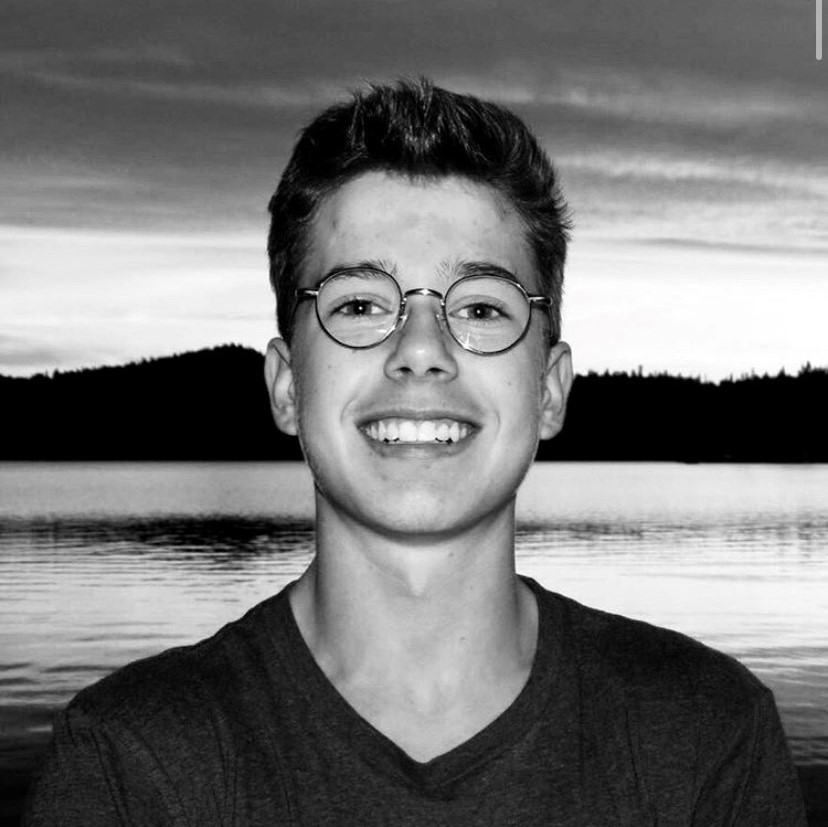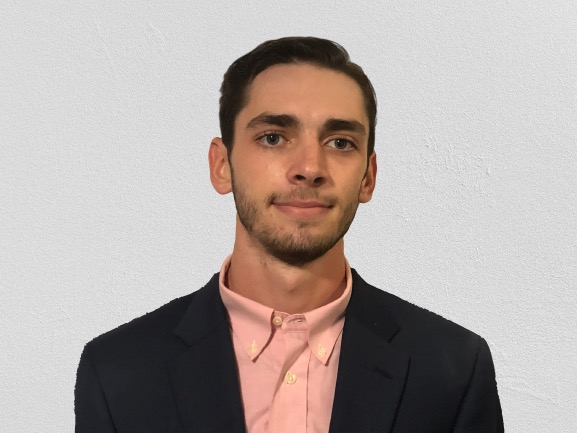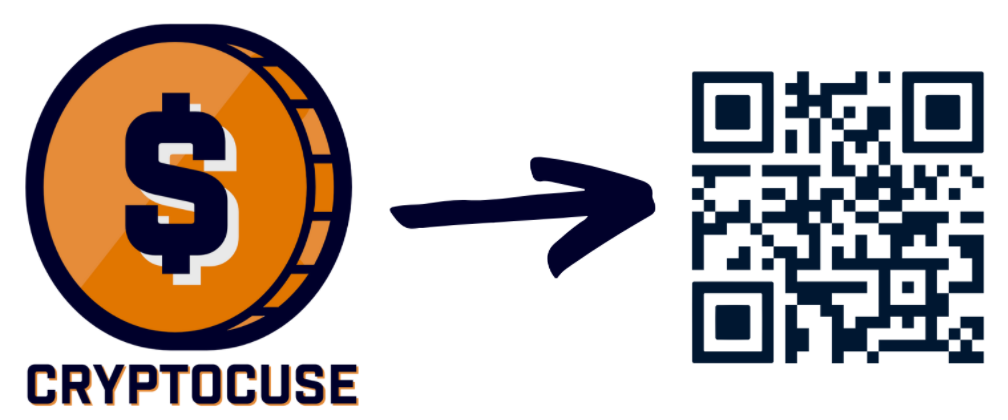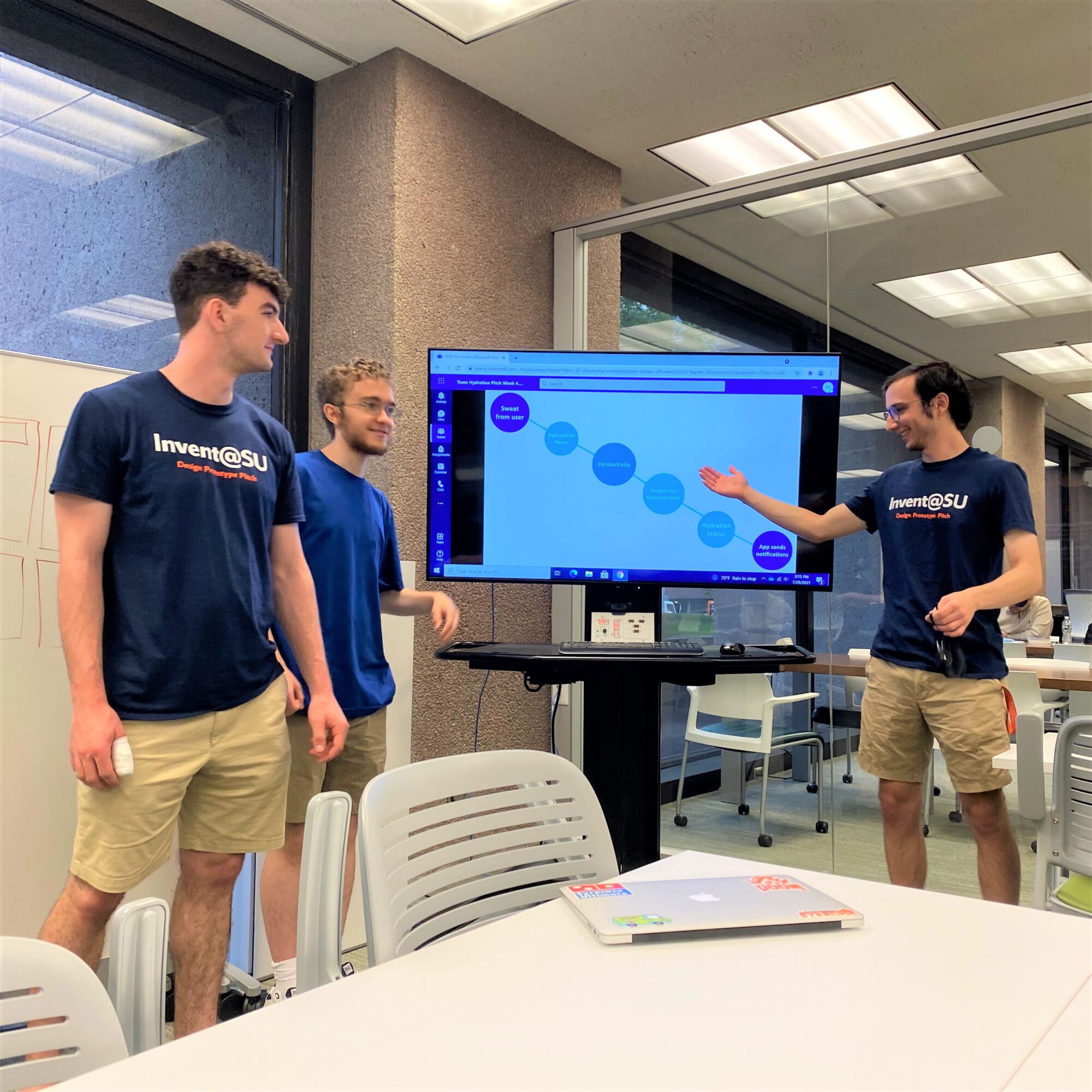
Like many of us when the pandemic arrived Jacob Howlett was left contemplating “What’s next?” After graduating from high school in the spring of 2020, Howlett—now a sophomore computer science major in the College of Engineering and Computer Science—noticed how quickly everyone and everything was transitioning online. Howlett realized this transition presented a big opportunity and he wanted to capitalize on it. He just wasn’t sure how.
While quarantining at home in Post Falls, Idaho—Howlett came across a very long Twitter thread in which a successful graphic designer spoke openly about their career. This designer explained how investing in himself by mastering a skill at a young age was critical for his future career.
Shortly after reading this story, Howlett stumbled upon a social media ad. Usually, Howlett would skip ads, but this video was so well constructed and enticing that he watched the entire 40-minute clip. Howlett wanted to learn how this digital advertiser captured his attention so seamlessly. The advertiser was selling a social media marketing course in which he taught individuals and companies how to advertise effectively on Instagram and Facebook. Howlett saw that this guy knew what he was doing, so he jumped at the opportunity.
After taking the course, Howlett launched Alpha Advertising Agency—a premier digital marketing agency that helps small businesses realize their full potential online. Nearly two years later, he is now a Facebook ads expert and has worked with more than ten companies —including service businesses such as landscapers, tree removers, and photographers. His job is to direct as much traffic to these businesses’ websites as much as possible while overseeing ad development and copywriting. For potential new clients, Howlett typically sets up a two-week trial period in which he charges the client a set-up fee and a percentage of the revenue that he generates for their business. In his first two-week trial, Howlett helped his client make $20,000, and he fondly recalls when a client messaged him, thanking him for generating $50,000 in revenue. Now, Howlett is working with the largest photography business within his home region.
Alpha Advertising Agency’s success has not come without its challenges and Howlett has learned several skills that go beyond mastering Facebook’s advertising formula. He notes that managing potential client relationships was especially difficult in the beginning. Having conducted over 30 sales calls, he now knows how to negotiate and communicate with clients as a business owner and has learned the importance of re-messaging leads to close sales.
Howlett is a new member of the Blackstone LaunchPad at Bird Library. He describes a feeling of fulfillment after joining an on-campus community where he can talk about business and new venture development. “I remember leaving Start-up in a Day feeling so happy to be around my kind of people. It’s rewarding being around those creative minds and having people who you can bounce things off and they’ll bounce stuff right back.”
Moving forward for Alpha Advertising—Howlett is focused on improving his organic marketing tactics, strengthening his relationship with the new photography company, and getting more clients. On the horizon for the digital advertising industry, Howlett says that the Apple ios15 update has made re-targeting and tracking people a lot harder for social marketers. However, he is bullish that the future of digital advertising will center around content creation.
For aspiring entrepreneurs, Howlett recommends that you act. It is okay if you don’t always know where you are going; you will get somewhere just by putting one foot in front of the other.
For more information on Alpha Advertising Agency, check out their website: https://alphaadvert.com/ . Additionally, to get in contact with Howlett, reach out to the Blackstone LaunchPad at Bird Library (launchpad@syr.edu).
Story by Selim Dangoor ’23, Blackstone LaunchPad Global Media Fellow


